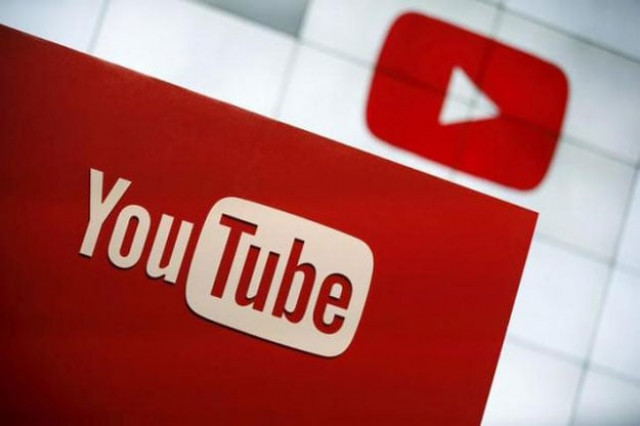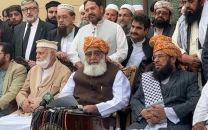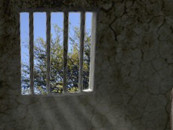YouTube launches Urdu version for Pakistan
YouTube says users visiting website will see videos that are popular in their countries in their local languages

PHOTO: REUTERS
“This launch provides Internet users in those countries with a more tailored YouTube experience to find high-quality local content so they can be informed, entertained, educated and inspired by content for their own culture and language,” Google Communications and Public Affairs Manager Zeffri Yusof said in a press release on Tuesday.
The Internet giant and parent company of YouTube said users visiting the website’s homepage from these countries would be able to see videos and playlists that are popular in their countries in their local languages – that is Pakistanis will be able to search for YouTube videos in Urdu for the first time.
With over a billion monthly users worldwide, YouTube is the world’s largest online video-sharing community, which is available in 88 countries locally, as well as in 76 global languages, including Nepali, Urdu and Sinhalese, the statement said.
This launch, said the company, will also provide more people from Nepal, Pakistan and Sri Lanka the chance to share their own stories and videos with the rest of the world. “We also hope that this will pave the way for the work of local creators, personalities and musicians to shine on the world’s largest and most vibrant video community.” The localised version aims to promote country-specific content, but the users can access a vast amount of knowledge-based and educational videos available on the website – Khan Academy lectures, TEDx Talks and National Geographic documentaries to name a few.
YouTube was blocked in Pakistan on September 17, 2012 for not removing blasphemous content from its platform. After Google and the Pakistani government failed to reach any agreement in this regard, the Pakistan Telecommunication Authority (PTA) – the telecom sector’s regulatory body – directed the country’s internet service providers to block access to Youtube.com.
Despite heavy criticism from rights activists, media and civil society, access to the website could not be restored. However, the surprise launch of its localised version raised many eyebrows and rights activists once again questioned the background of the development.
“What is the specific nature of the agreement reached between the government of Pakistan and Google to enable localisation [of YouTube] is something that must be clarified publicly, both by the government of Pakistan and Google itself,” rights organisation BoloBhi said in a statement.
The Express Tribune tried contacting the PTA and the Ministry of Information Technology and Telecommunication for a comment, but neither responded.
When asked if Google and the government had reached an understanding, the Internet giant said: “We have clear community guidelines, and when videos violate those rules, we remove them. In addition, where we have launched YouTube locally and we are notified that a video is illegal in that country, we may restrict access to it after a thorough review. Government requests to remove content will continue to be tracked, and included in our Transparency Report.”
Published in The Express Tribune, January 13th, 2016.



















COMMENTS
Comments are moderated and generally will be posted if they are on-topic and not abusive.
For more information, please see our Comments FAQ